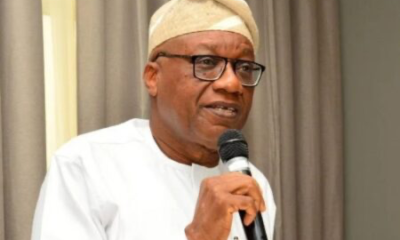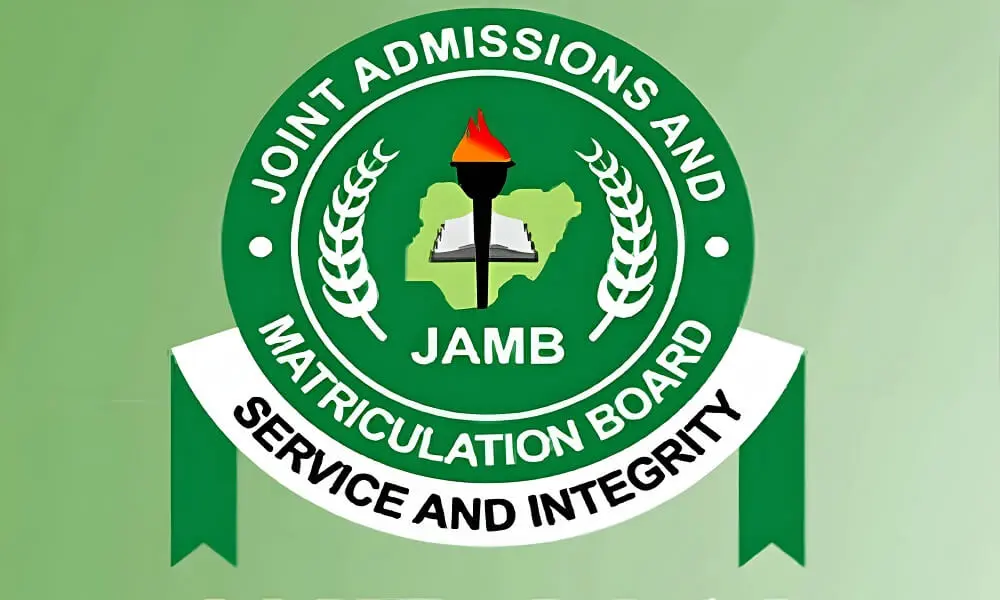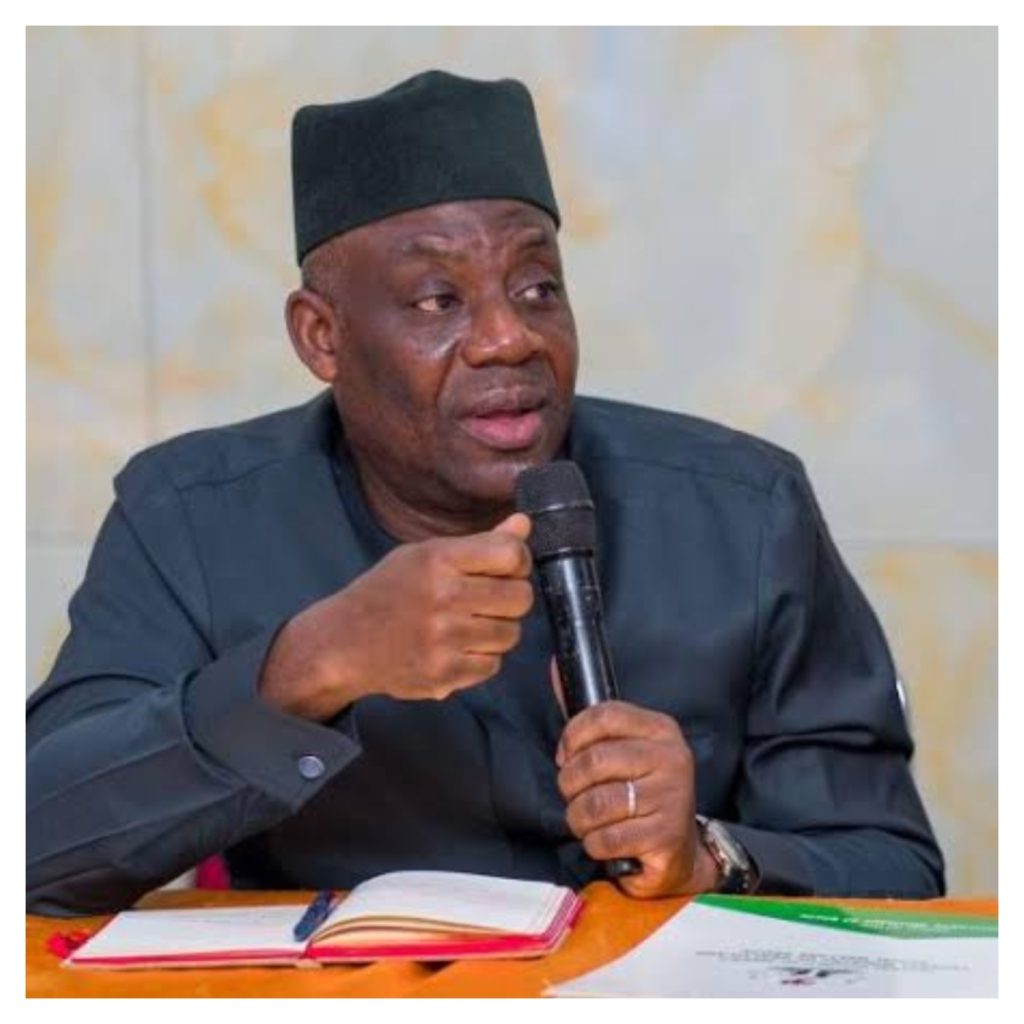Education
How Leaked Memo Exposed Trends In Securing Admission Into Varsities
Published
4 months agoon
By
Ekwutos Blog
“My son registered and wrote the Unified Tertiary Matriculation Examination (UTME) three times before he was able to secure admission into the university to study,” said Mr Ifeanyi Ozoemena.
At each sitting, Ifeanyi’s son scored above 200 marks but failed to secure admission to study his desired course, Computer Science, at one of the universities in South-West Nigeria.
He said it was after a friend introduced him to a staff of the university after his son wrote the third entrance exam that he secured admission.
Thus, gaining admission to most public universities is not just about scoring points, but also about who you know to help you.
Another parent, Eucharia Azu, said her son also missed securing admission with his mates despite scoring higher than the cut-off mark set by the university for the course he applied to study.
She said the course he was seeking admission to study was highly sought after, making it more ‘about who you know’.
Mrs Azu said some people get admission based on merit with the reforms at the Joint Admissions and Matriculation Board (JAMB), but “You need people who can push for you and that gives you a level of assurance that someone is there to ensure your child is not passed by.”
She bemoaned the relegation of merit while “money buys for you everything.”
Another parent said after he tried to use some people in the education sector to influence his son’s admission he opted to pay for it.
“It was the only option I had after he could not secure admission the previous year and I did not want him to remain at home, “ he said
Admission into tertiary institutions, especially universities, has over time become difficult because of the challenge of access.
In his presentation on the 2023 Admission Exercise, the JAMB Registrar, Prof. Is’haq Oloyede, said from over 1,635,881 applications for UTME and Direct Entry, only 639,263 candidates were admitted into tertiary institutions across the country.
This was in July 2024. The limited space and capacity of the universities to absorb qualified candidates to study has pushed many desperate parents into paying to secure admission for their children, including politicians who use their influence to peddle slots for their preferred candidates.
Meanwhile, a memo from a senator to the Vice Chancellor of the University of Abuja seeking admission for students was leaked and it went viral generating divergent views online.
In the leaked memo, the senator appealed to the university leadership to grant admission to four students to pursue various courses including Medicine, Public Administration, Computer Science and Law in the school.
The Unified Tertiary Matriculation Examination (UTME) scores as contained in the letter had 264 as the highest to study Law, followed by 205, also applying for Law, 181 for Computer Science, 191 for Public Administration, and 222 for Medicine and Surgery.
Reacting to the incident, an X user, @Govern_mend said, “Nigerian senator writes to seek university admission for constituents,” asking, “Does a public office holder need to write a letter to a school for any student to be admitted?”
Another wrote: “This is why many do not get admission into some universities.”
This, however, is not new as a former vice chancellor had told Daily Trust that the requests he gets from lawmakers and people in power were usually high and made the admission process difficult for them.
The admission rate in Nigerian universities is placed at about less than 40 percent of the total number of applicants, leaving the rest to scramble for another chance the following year, which many are not likely to get.
This has left parents and applicants to universities across the country disappointed and disillusioned and a few others going to private institutions.
Sources from one of the universities in the North, however, told Daily Trust that demand for admission by politicians doesn’t translate to automatic admission for the candidates.
“If you don’t have up to the required cut-off mark on your JAMB (score), you don’t get admitted here,” a source said.
“I can tell you that because there’s the National University Commission (NUC) accreditation, JAMB is watching. We don’t take anybody with less than 180. And this place is very competitive.”
Another source from the University of Abuja denied pressure from politicians for admission saying, “There’s no harm in trying to use their power; trying to use their office. They don’t get it. JAMB will not allow that.”
Prof. Ugo Sylvester, a lecturer at the University of Abuja and chairman of the institution’s Academic Staff Union, while speaking on politicians’ perceived interference in admissions, said it was commonplace for parents or anyone else to seek help where they think they could get it.
He said the leaked memo wasn’t a directive but an appeal thus it was not mandatory to be acted upon as being perceived.
You may like


50 Cent actually motivated me when he refused to take pictures with me!..-Davido


Datti advises Atiku to drop 2027 presidential bid


“If we have no child after 10 years of marriage and the fault is from my husband, I will suggest getting pregnant by another man – Nigerian woman says”


BREAKING: INEC Gets ‘Acting Chairman’ Amid Mahmood Yakubu’s Alleged Sacking


One dead, four injured in Osun Polytechnic cult clash


Lagos launches probe after overhead water tank kills woman
Education
ALAUSA FLAGS OFF SBMC-SIP AND TEACHER DEVELOPMENT INITIATIVES TO REVITALISE BASIC EDUCATION.
Published
4 hours agoon
April 10, 2025By
Ekwutos Blog
The Honourable Minister of Education, Dr. Maruf Tunji Alausa, has officially launched the School-Based Management Committee – School Improvement Programme (SBMC-SIP) and the Teacher Professional Development (TPD) initiative, both implemented by the Universal Basic Education Commission (UBEC).
He stated that these transformative programmes, funded through the UBE Intervention Fund, aim to strengthen school governance through community participation and improve teaching standards to enhance learning outcomes. This aligns with the Renewed Hope Agenda of President Bola Ahmed Tinubu, GCFR.
Dr. Alausa announced the Federal Government’s support for UBEC’s 2025–2027 targets, which include:
Construction of 7,200 UBE facilities
Provision of 1.68 million school furniture units
Renovation of 195,000 classrooms
Installation of 22,900 boreholes and 28,000 toilets
Perimeter fencing in 14,000 rural schools
These efforts align with the upcoming competence-based curriculum, with Teachers’ Guides in development. He emphasized the importance of teacher upskilling and community engagement, urging State and Local Governments to support and monitor the SBMC-SIP.
Commending UBEC, he called on stakeholders to support the Renewed Hope vision. Prof. Suwaiba Said Ahmad, Minister of State for Education, reaffirmed the government’s dedication, citing achievements in infrastructure, teacher training, and resource distribution.
Dr. Aisha Garba, UBEC Executive Secretary, highlighted the initiatives’ focus on bridging infrastructure and teacher quality gaps. “We are not merely launching programmes; we are reaffirming a national commitment to every Nigerian child,” she said.
With over ₦2 billion allocated to 1,147 SBMCs, over 15,000 projects will be supported, fostering transparency and sustainable development.
Education
2025 mock UTME: JAMB disburses over N397m in transport allowances to officials
Published
3 days agoon
April 7, 2025By
Ekwutos Blog
The Joint Admissions and Matriculation Board, JAMB, said it has disbursed N397,030,900 as transport allowances to 1,909 officials participating in the conduct of the 2025 Mock Unified Tertiary Matriculation Examination, UTME, scheduled for April 10, 2025.
The Director of Finance, Mufutau Bello, disclosed this at a meeting convened to evaluate the Board’s readiness for both the mock examination and the main UTME.
According to Bello, the amount released so far for transport allowances represents only the first tranche of payments, covering one-third of the total officials involved in the exercise.
Stressing the critical national importance of the two examinations, he said, “The mock exercise is the first phase of our core mandate, and we must, as always, distinguish ourselves. The nation relies on the success of this exercise; any shortcomings could tarnish the integrity of our education system.
“Much is at stake, including the dignity of our processes, the tertiary education system, and substantial financial resources—over N397,030,900 has been paid as transport allowances to the 1,909 officials travelling for the mock exercise scheduled for the 10th April, 2025.
“This amount represents only the initial phase, accounting for one-third of the total number of officials involved.”
Staff members of the Board pledged their full commitment to ensure the successful and hitch-free conduct of both exercises across the country.
While acknowledging public concerns over local travel allowances, they clarified that such discussions often come from a limited understanding of the logistical scope involved in the nationwide examination process.
Education
Nigerians Govt orders universities, polytechnics to publish budget, others on websites
Published
3 days agoon
April 6, 2025By
Ekwutos Blog
The Nigerian government has directed all heads of federal universities, polytechnics, colleges of education and other higher institutions to disclose their annual budget and other institutional data for public scrutiny.
The Minister of Education, Tunji Alausa, gave this directive in a statement released on Saturday by the ministry’s spokesperson, Boriowo Folasade
The minister said that educational institutions should publish their budget breakdown, research grant, Tertiary Education Trust Fund Allocation as well as student population on their official websites.
According to the minister, the move is to enshrine accountability and transparency in Nigeria’s education sector.
“In a bold move to entrench transparency, accountability, and good governance in Nigeria’s tertiary education system, the Honourable Minister of Education Dr Maruf Tunji Alausa has issued comprehensive directive mandating all Federal Vice- Chancellors, Rectors and Provost to publish key institutional data on their official websites with immediate effect. Aligning Nigeria’s higher education management with global best practices.
“Each institution must provide its Annual Budgetary Allocation in full detail, including the breakdown of expenditure across three core areas: personnel cost overhead costs and capital expenditure. In addition,
institutions are to disclose their Research Grant Revenue from the previous year.
“This data should be separated into two distinct sources: grants obtained from domestic bodies such as local industries, government agencies, or foundations; and those received from international sources, including foreign institutions, multilateral organizations, and development partners.
“Also to be displayed is the TETFund Allocation for the current year. The Institutions must clearly show the
total amount received from the TETFund, reflecting financial support for academic and infrastructural development in the present calendar year,” the statement said.
The directive further mandates the institutions to publish the total value of their endowment fund as recorded at the end of the previous year. This figure, which reflects funds donated or invested for the institution’s long-term financial health, must be updated quarterly to ensure currency and transparency.
“Finally, institutions are to present their current Total Student Population, which must be categorized into undergraduate and postgraduate levels, thereby providing a clear picture of enrolment and institutional capacity.
“The Ministry emphasizes that this information must be presented in a clear, accessible, and user-friendly format for public visibility. Websites should be structured in a way that allows the public, including parents, students, and stakeholders, to easily locate and understand these data points.
“All federal institutions are expected to comply fully with this directive and ensure that their websites are completely updated no later than May 31, 2025,” the statement added.
Ekwutosblog had earlier reported that a transparency report described Nigerian universities as a den of impunity and secrecy.

50 Cent actually motivated me when he refused to take pictures with me!..-Davido

Datti advises Atiku to drop 2027 presidential bid

“If we have no child after 10 years of marriage and the fault is from my husband, I will suggest getting pregnant by another man – Nigerian woman says”
Trending

 Trending6 months ago
Trending6 months agoNYA demands release of ‘abducted’ Imo chairman, preaches good governance
- Business6 months ago
US court acquits Air Peace boss, slams Mayfield $4000 fine

 Politics6 months ago
Politics6 months agoMexico’s new president causes concern just weeks before the US elections
- Entertainment6 months ago
Bobrisky transferred from Immigration to FCID, spends night behind bars
- Entertainment6 months ago
Bobrisky falls ill in police custody, rushed to hospital

 Politics6 months ago
Politics6 months agoRussia bans imports of agro-products from Kazakhstan after refusal to join BRICS

 Politics6 months ago
Politics6 months agoPutin invites 20 world leaders
- Politics1 year ago
Nigerian Senate passes Bill seeking the establishment of the South East Development Commission.

